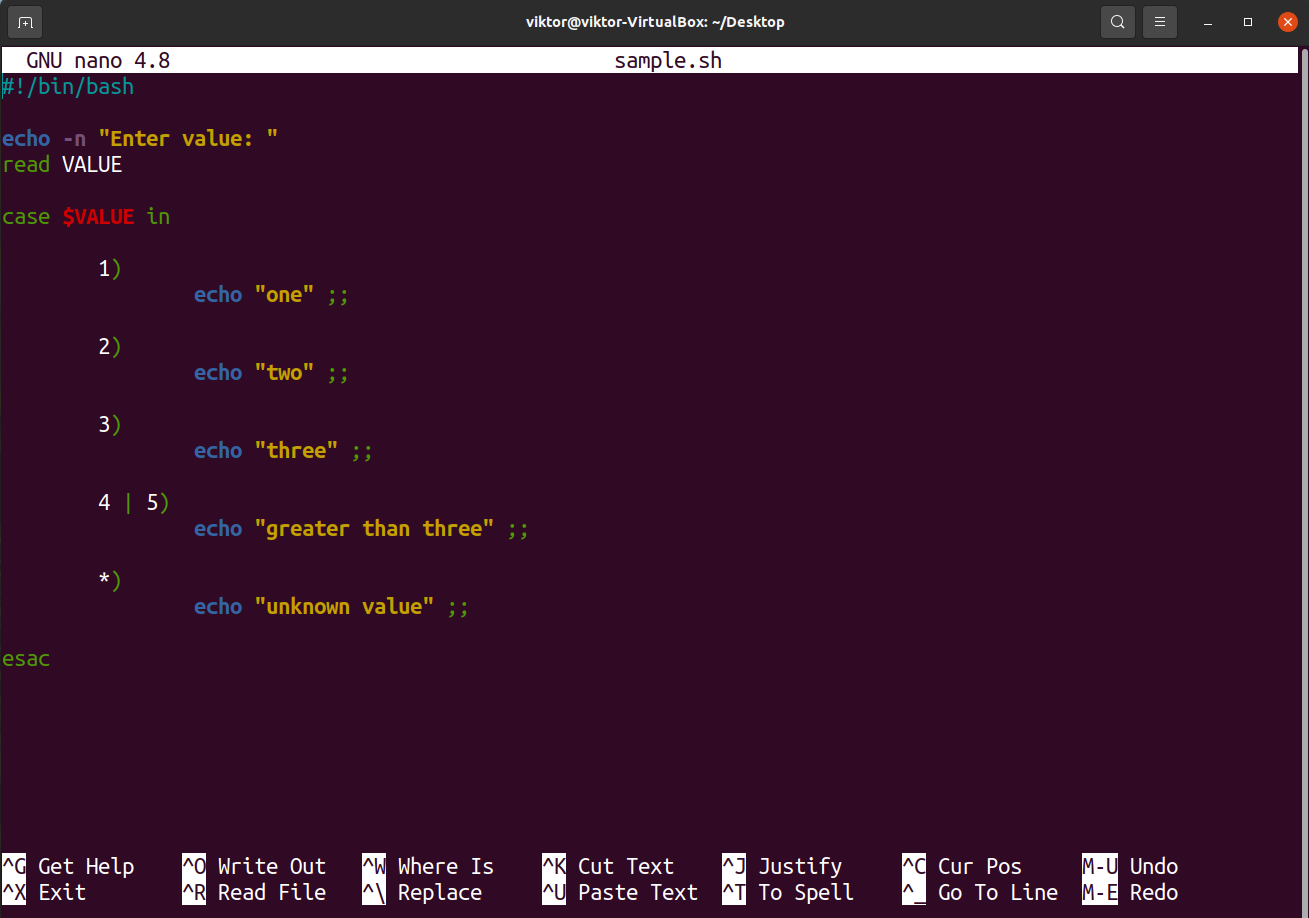See examples of extended globbing, regular. Regex allows users to search, match, and manipulate text patterns with. Web if you wanted to match letters, digits or spaces you could use: Web i'm trying to match a pattern stored in a variable through an if block. It can also be used to.
This works in bash, dash, and just about any other shell you can name. Regex allows users to search, match, and manipulate text patterns with. Any character that appears in a pattern, other than the special pattern characters described below, matches itself. Any character that appears in a pattern, other than the special pattern characters described below, matches itself. Web learn how to use bash's glob patterns, also known as wildcards, to match filenames and other expressions.
Web learn how to use bash's glob patterns, also known as wildcards, to match filenames and other expressions. The nul character may not occur in a. Web you can use the test construct, [[ ]], along with the regular expression match operator, =~, to check if a string matches a regex pattern (documentation). Web learn how to use special characters and bracket expressions for filename expansion and other shell features in bash. Any character that appears in a pattern, other than the special pattern characters described below, matches itself.
Compare with regular expressions and. Web regular expressions are a useful tool for pattern matching in bash scripting. As per my understanding, this should be a match and get match echo statement. Web the manpage for bash says: Web learn how to use bash's glob patterns, also known as wildcards, to match filenames and other expressions. Web case $line in (*$pwd*) # whatever your then block had. Web if you wanted to match letters, digits or spaces you could use: They allow you to define complex patterns and search for matches within. The word is expanded to produce a pattern just as in. Alternatively, you can use wildcards (instead of regexes) with the. ${parameter#word} ${parameter##word} remove matching prefix pattern. Other characters similarly need to be escaped, like #, which would start a comment if not. Web to match regexes you need to use the =~ operator. Web i'm trying to match a pattern stored in a variable through an if block. Web writing a script with just the regexp and case patterns:
Regex Allows Users To Search, Match, And Manipulate Text Patterns With.
The word is expanded to produce a pattern just as in. The nul character may not occur in. As per my understanding, this should be a match and get match echo statement. Web the manpage for bash says:
Web Learn How To Use Special Characters And Bracket Expressions For Filename Expansion And Other Shell Features In Bash.
Web if you wanted to match letters, digits or spaces you could use: Web i'm trying to match a pattern stored in a variable through an if block. They allow you to define complex patterns and search for matches within. The nul character may not occur in a.
Compare With Regular Expressions And.
Web apart from grep and regular expressions, there's a good deal of pattern matching that you can do directly in the shell, without having to use an external program. Web learn how to use bash's glob patterns, also known as wildcards, to match filenames and other expressions. See examples of extended globbing, regular. Web you can use the test construct, [[ ]], along with the regular expression match operator, =~, to check if a string matches a regex pattern (documentation).
Alternatively, You Can Use Wildcards (Instead Of Regexes) With The.
This works in bash, dash, and just about any other shell you can name. It can also be used to. It consists of a few wildcards: Other characters similarly need to be escaped, like #, which would start a comment if not.









